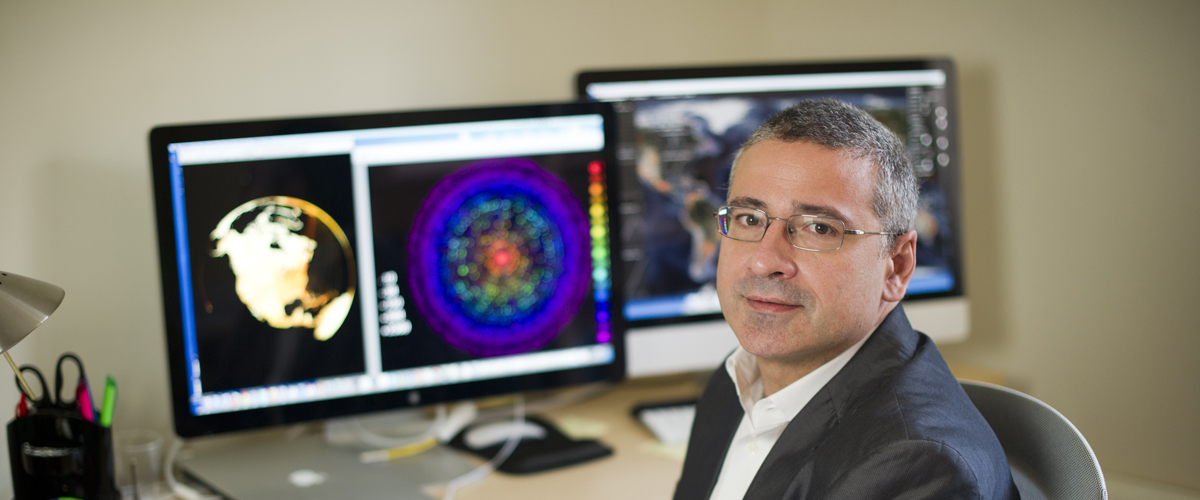by Angela Herring of news@Northeastern
The science of complex systems was born in the mid-20th century, but it has only recently begun to mature into a research field with real-world relevance. The development of new technologies that stamp data points on nearly all of our activities is allowing us to quantifiably study society — the ultimate complex system.
“Complex systems is really now getting into a different stage of its life in which it can start to have an impact through practical applications,” said Alessandro Vespignani, the Sternberg Family Distinguished University Professor of physics, computer science and health sciences.
It is for this reason that the European Union sought in 2006 to support the first-ever academic society devoted to complex systems science, which comprises 600 members worldwide. This year, in the first renewal of the society’s leadership, Vespignani was elected as its president.
“This is a young field and it needs young researchers to promote it, advocate for it and provide momentum,” said Vespignani, whose research uses human mobility patterns to track the spread of diseases across the globe.
The society came to fruition in 2004 during the first European Conference for Complex Systems, which has since grown into an annual series. Vespignani hopes to expand the series’ reach during his three-year term by holding meetings in the EU and turning both the conference’s and the society’s activities into a global endeavor.
“The idea is to be more and more inclusive and more worldwide with events not just in Europe, where the society was born,” Vespignani said. He hopes that expanding and collaborating with smaller institutions devoted to the field would enable the society to more effectively coordinate and support the efforts of complex systems scientists around the world.
Vespignani also noted that his appointment would allow him to advocate for more funding for the field of complex systems science. The advent of so-called “big data,” he said, which touches the lives of almost everyone, has forced the field to confront a series of unique ethical challenges that must be addressed with careful policy measures.
“Complex systems science is not anymore just a fancy science to look at very exotic phenomena,” said Vespignani. “It actually is something that might help to solve important real-world problems. It has the maturity now to get into applied science.”

